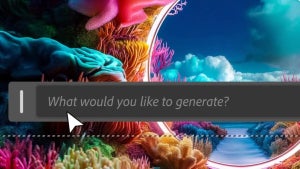 Although you may not be aware of it, the BBC has been instigating a quiet revolution in the way news is delivered across the Net. The BBC Backstage service promises to help you “build your stuff using our stuff.” It provides developers with a great platform to showcase their talents by creating applications, widgets, pipes and gadgets using the endless stream of content produced by the BBC.
Although you may not be aware of it, the BBC has been instigating a quiet revolution in the way news is delivered across the Net. The BBC Backstage service promises to help you “build your stuff using our stuff.” It provides developers with a great platform to showcase their talents by creating applications, widgets, pipes and gadgets using the endless stream of content produced by the BBC.
The community of developers latching onto this opportunity is growing pretty quickly and the ‘stuff’ that’s being produced is pretty mind-blowing in terms of innovation, such as a Traffic Browser, which takes the latest traffic information from the Beeb and applies it graphically in real-time using Google Maps, or a 7-day TV listing bot, which delivers a BBC TV guide to your IM client. There are also some cracking applications for Second Life on Prototypes, including an outdoor screen and another which displays RSS news feeds on an electronic board.
The BBC seems to have really hit on something big here, and surely it won’t be long before other broadcasters and big media firms start offering their APIs to the masses, creating a big open source content love-in. Which leads to a major concern from a journalistic perspective. For me, the great thing about the digital era in which we live is the sheer range of news and information sources open to the consumer, giving you a wealth of different arguments, opinions and judgements on topics.
If media behemoths like the BBC, CNN, Fox, News International et. al start opening up their content for developers this could lead to an alarming situation where almost all of our news is fed to us by these corporate giants, whether it’s through Second Life, Facebook, Google Maps or Yahoo! Pipes. I for one am hoping for it to be proved that the BBC has given the online world a gift with Backstage rather than creating a monster.

